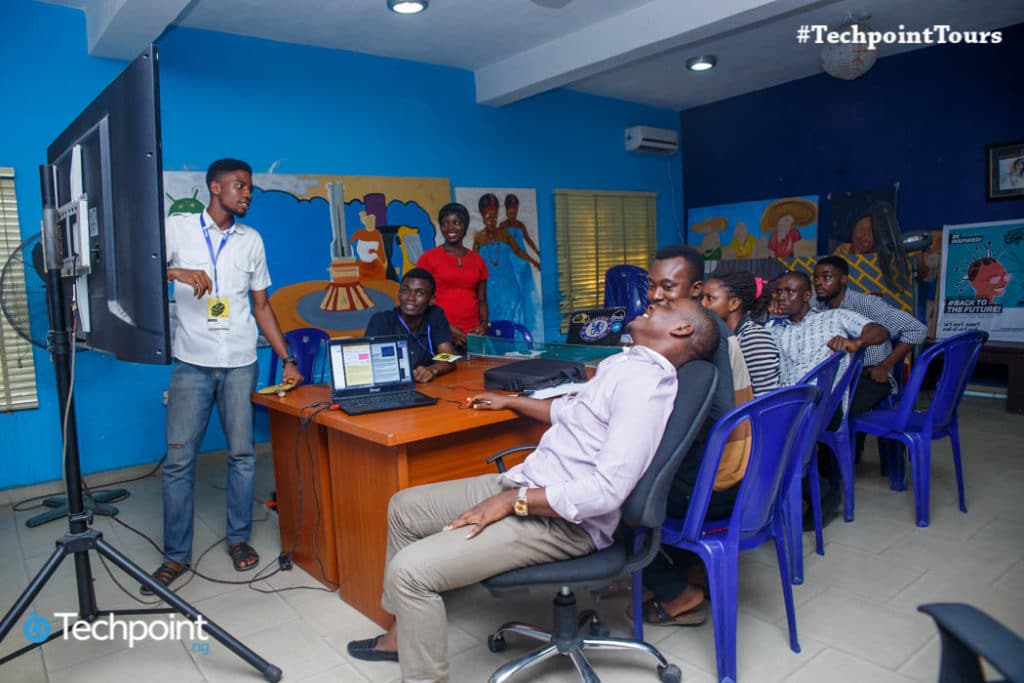Does the phrase “AI will take your job” still make you uneasy as it did in early 2023 when generative AI started gaining popularity in this part of the world? Initially, only a few jobs in certain industries, including agriculture and manufacturing, were projected to be unaffected.
Since then, significant advancements have occurred in generative AI. Initially pioneered by OpenAI before being backed by Microsoft, other tech companies have since developed their own solutions, such as Google’s Gemini (formerly Bard) and Microsoft’s Copilot.
Today, the narrative has shifted to using AI tools effectively rather than fearing it will take jobs.
One job often mentioned during these discussions is software engineering. A couple of weeks ago, a Nigerian founder suggested the use of ChatGPT to generate code to be refined by senior developers. Though this suggestion was not well-received by the senior developers, it indicates a perceived threat to entry-level developers.
The Death of the Junior Developer is a blog post that presents scenarios where AI may displace junior talent in various industries, including law, engineering, and media. The conclusion emphasises the importance of knowing precisely what you want before using AI as this will help to quickly figure out when one is being misled. This advice is particularly for aspiring and entry-level developers who must learn quickly.
This then shifts the focus to how they learn. For the sake of structure, this piece will focus on training academies and institutes, even though different training channels exist and they release different talents into the job market.
Enters tech training institutes

The quality of tech talent from training programmes has often been called into question. For example, at the beginning of the Nigerian government’s 3MTT programme, experts and edtech founders expressed scepticism about the quality of talent that would emerge after three months of training and who would employ them.
Recall that at the start, the programme had already announced partners like UNDP that was interested in offering internships to 3,000 fellows from the programme.
By the end of the second cohort in April 2024, which was to train 300,000 fellows, some founders anonymously informed Techpoint Africa that the Bosun Tijani-led Federal Ministry of Communications, Innovation and Digital Economy (FMCIDE) is requesting some startups to take on some fellows, but responses were not all positive due to hiring freezes, the economic situation, and doubts about the talent’s quality.
This short-term training programme and placement challenge is not unique to 3MTT; it is a model some training programmes run.
This raises two questions.
Where does this leave tech training institutes that promised post-training opportunities? Do recruiters and employers consider graduates who undergo these two-week to 12-month programmes as quality hires?
When Andela burst onto the scene a decade ago to offer software engineering training and provide jobs, many young Africans seized the opportunity. Since then, similar academies have sprung up to bridge the talent demand gap.
These academies offer specialised training in core and adjacent tech skills, including engineering, product, and data. Although Andela has since changed its model to talent hiring, it has created a culture of investing in tech talent, with governments, startups, and individual businesses supporting tech training institutes by partnering to absorb these talents for internships.
What’s the quality of these entry-level developers?
Ashley Immanuel, COO/Co-founder of Semicolon, an edtech startup, gives an idea of how long training should take for graduates to be employable.
“We have typically found, based on our experience, that to take the average kind of learner in our local talent pool and get them to a level of being highly employable requires deeper, more sustained investment, more time, highly skilled facilitators and coaches, a very holistic curriculum, and so forth. These things have been critical to consistently delivering highly employable talent, and that’s why we have followed that model.”
For context, Semicolon runs a 12-month training programme for software engineers, a duration Immanuel considers sufficient to support trainees’ success.
The startup can take the risk upfront to guarantee job placement after completion, as long as students attend classes, complete assignments, meet certain minimum thresholds, and put in the required effort. She claims the programme has a relatively high completion and placement rate.
“We’re seeing enough demand for a certain quality of tech talent. We know that we will either need them on our team or will be able to place them with hiring partners.”
Ifeoluwa Aiki, COO of Liteinnovations Consults, a digital agency and training institute, has a slightly different opinion. He believes six months is ideal even for those starting with no computer knowledge.
After experimenting with four and five months and seeing how far they could go with the curriculum, the startup now requires students to be physically present four days a week, from morning to evening, for training and projects, all in six months.
“For frontend, I’d say six months of intense training. For backend, at least three months, for those who have completed the six months of frontend. Fullstack training for beginners should be at least nine months intensive/full-time training.”
He is optimistic that these students would be fit for junior roles upon completion; ideally, they should have completed at least 12 projects by then.
Immanuel agrees that building and transforming people is hard work and requires a lot of investment from the student, especially when the programme is hands-on.
In 2022, I decided to learn Product Design. The one-year course cost me $300 and was well-structured and paced, with practical modules. Unfortunately, I dropped out in the eighth month due to a health emergency. If this programme boasts a reasonable completion rate, it could produce job-ready graduates.
Aiki notes that tech training institutes providing hands-on service are rare, even though that is what makes talent fit for the market. Immanuel explains why there are more short-term models in the market.
“One reason you don’t see a lot of our model is that the business case is tricky. You need technical facilitators with strong skills to build and run the curriculum, and not many strong software engineers want to take that hard path.
“Secondly, it’s about affordability. There’s no shortcut to learning and human transformation. You need substantial investment in time and finance. Strong curriculum, facilitators, facilities with reliable electricity and Internet, and adequate laptops all cost money, and the average Nigerian can’t afford to pay upfront.”
This is why participants often use student loans or study-now-pay-later services. However, not every training institute can promise access to partners who will absorb these talents, as Aiki noted.
Demand for skilled tech talent outpaces supply, is this still true in 2024?
Many tech training institutes sprang up to meet the demand for skilled tech talent.
A Nigerian UK-based software engineer with seven years of experience suggests that while the market is saturated — driven by the increased appeal of tech skills as promoted by the media and industry players — quality talent remains scarce.
He notes a particular demand for highly qualified talent over junior developers. Unfortunately, the unique challenges of the Nigerian market lead many skilled professionals to seek opportunities abroad for better pay and stability.
Immanuel agrees with this assessment.
“We get requests for all levels, but a lot of requests are especially for people that have two, three, five, eight years of experience. There’s a lot more demand than there is supply for those roles in Nigeria.”
The misalignment between the quality of talent being supplied and the demands of organisations is evident. This need for well-equipped talent is somewhat highlighted in how startups and corporations now run in-house training programmes or academies.
One pain point employers express is that the current talent pool, even after graduating with computer science degrees and from training institutes, is not adequately prepared to deliver what is required, leading companies to retrain them.
With concerns about the quality of junior tech talent, there is a valid fear that AI poses an even greater threat, given how versatile AI tools have become.
Are we exaggerating the impact of AI on junior developer jobs?
Aiki expresses concern about AI threatening opportunities for entry-level developers.
As a senior developer with 14 years of experience, he believes, “There are a lot of people looking to go into tech now, but there are fewer openings available. The competition is becoming [more] intense by the day.”
Conversely, the UK-based software engineer believes the current level of AI adoption is not as alarming as people claim.
“At this point, AI is simply helping everyone get better at what they do, either as a junior or senior.”
He explains that his company endorses the use of certain AI tools, noting that AI adoption on a company-wide level has not affected hiring decisions. In fact, his company recently completed a hiring round for engineers.
“These days, I will not push anything without asking AI to code-optimise for me because it’s going to give me a lot of perspectives I wouldn’t have thought about.At this time, AI is not taking anybody’s job; it is only augmenting my expertise. It is the same for juniors. With prompt engineering, the intelligence of the AI is that of the person using it, irrespective of the level.”
He provides instances of team members who barely use the AI tools that he uses.
Meanwhile, Aiki isn’t actively using AI tools.
“I’m a bit old-fashioned. I’ve only used generative AI to test and see what it can do.”
The senior software engineer concludes that AI might take jobs in the future, but we are not there yet.
He references other factors affecting tech talent demand and supply, such as the lingering impact of COVID-19 and recent industry layoffs. He recounts losing a potential role to a recently laid off employee of X (formerly Twitter) and notes that many unemployed seniors are willing to accept junior roles for less pay.
If anything, this poses a larger risk to junior developers than AI.
With the mooted AI takeover drawing nearer, the wisest course of action would be for every talent to become adept at its use.











